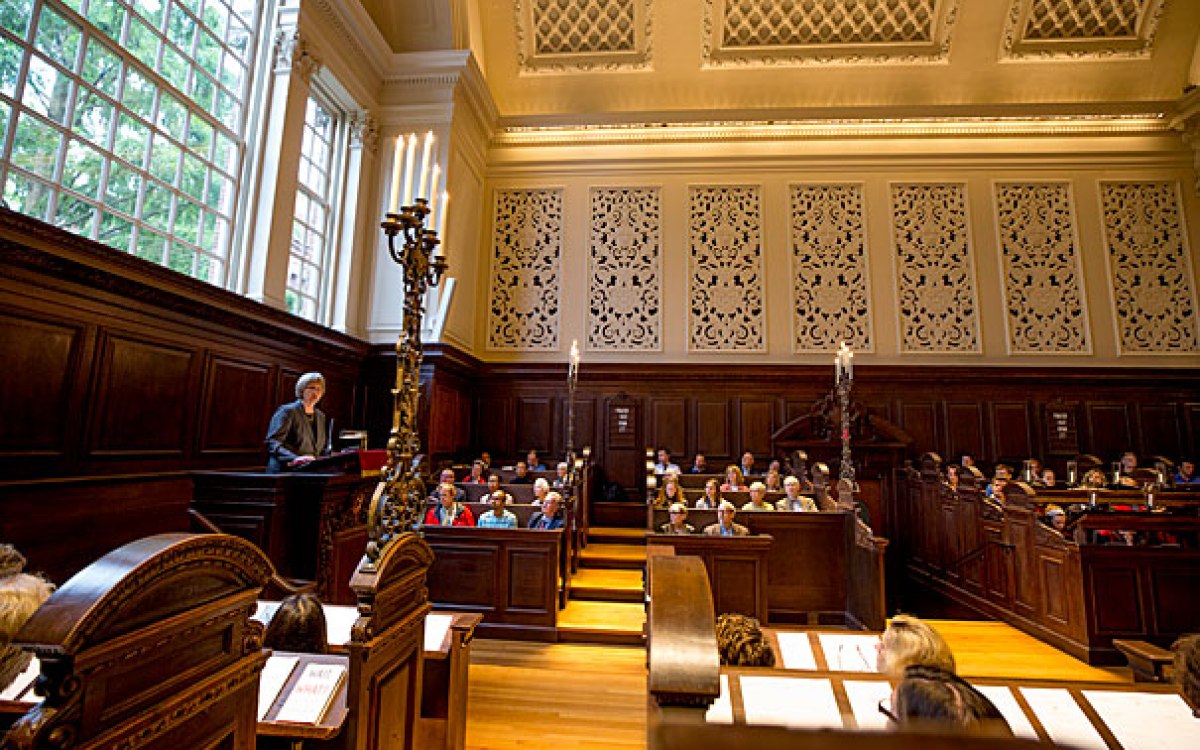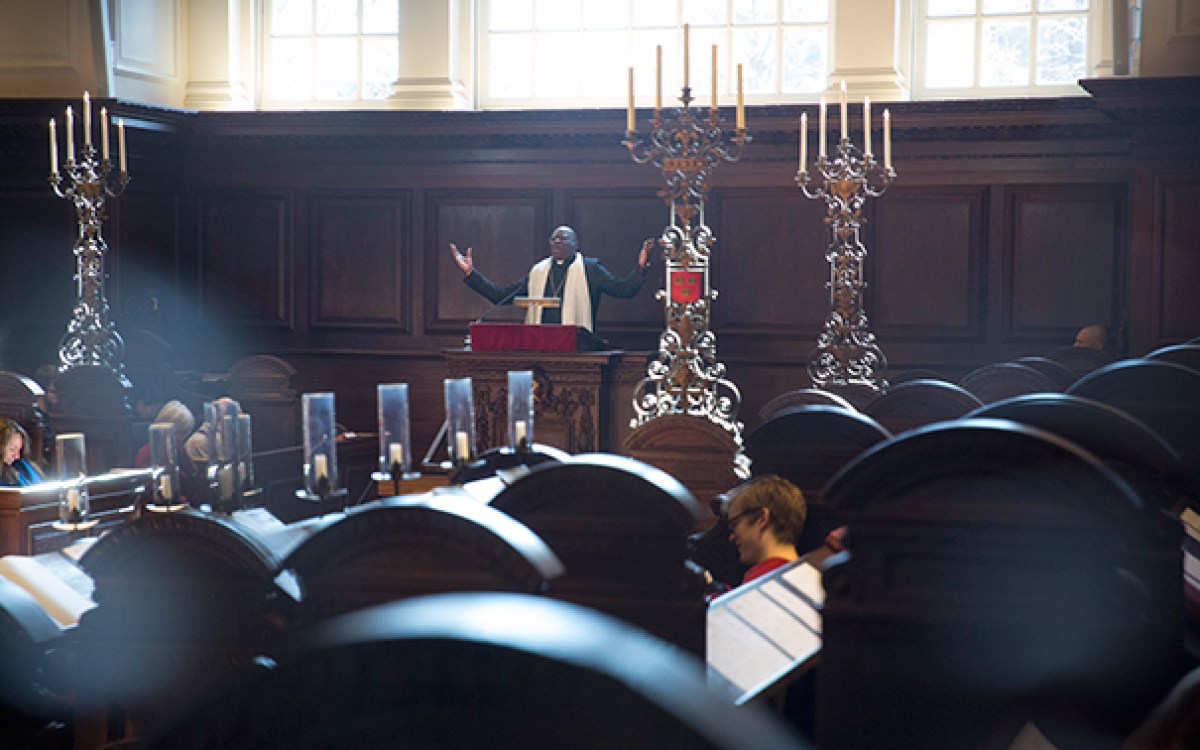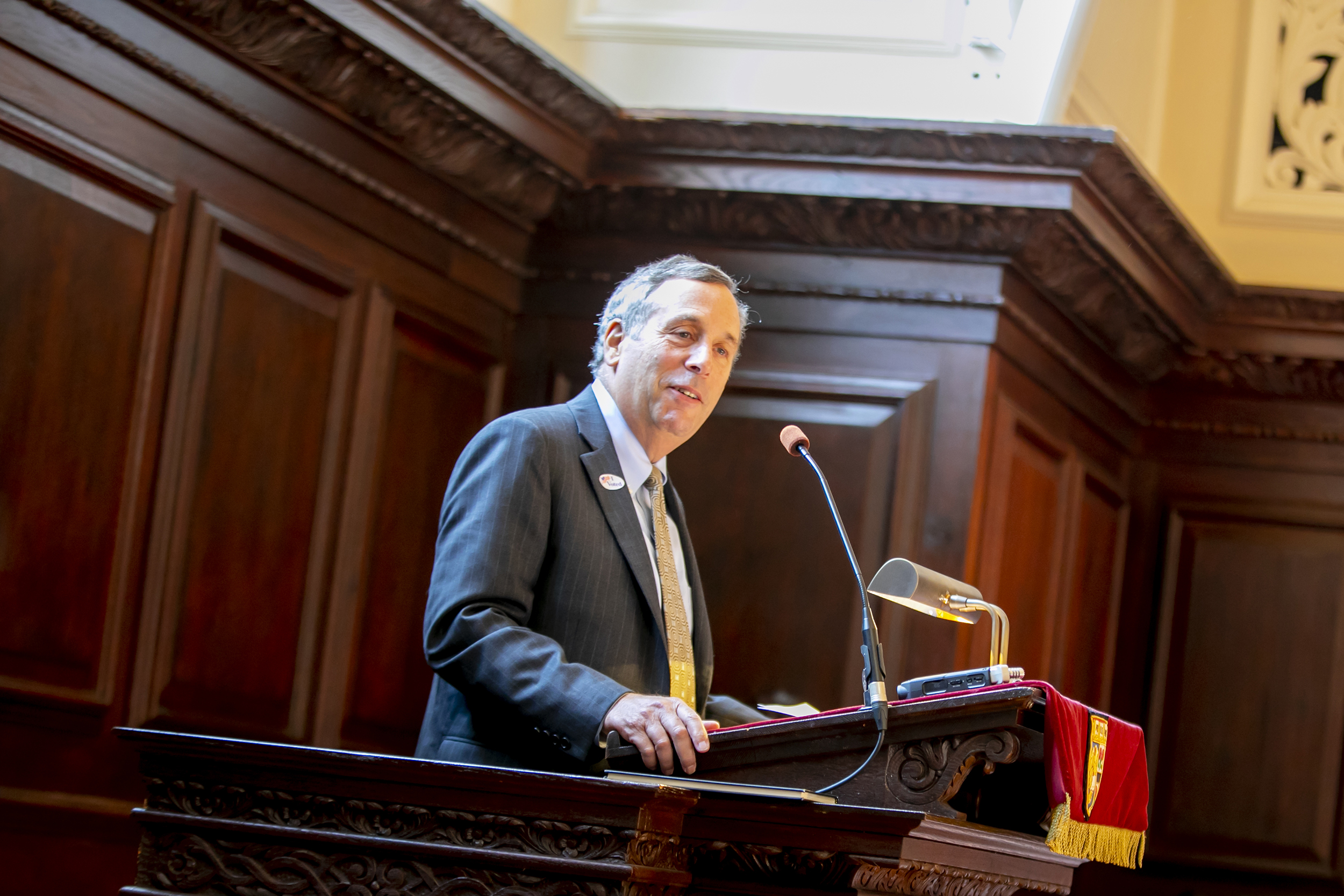
Contemplation and reflection were themes of Harvard President Larry Bacow’s remarks at Morning Prayers at Memorial Church.
Rose Lincoln/Harvard Staff Photographer
Bacow stays in the moment at Morning Prayers
President stresses community, reflection at first service of the semester
With the intensity and nonstop pace of the fall semester set to commence, President Larry Bacow on Tuesday encouraged members of the Harvard community to carve out time in their harried schedules for “contemplation and reflection.”
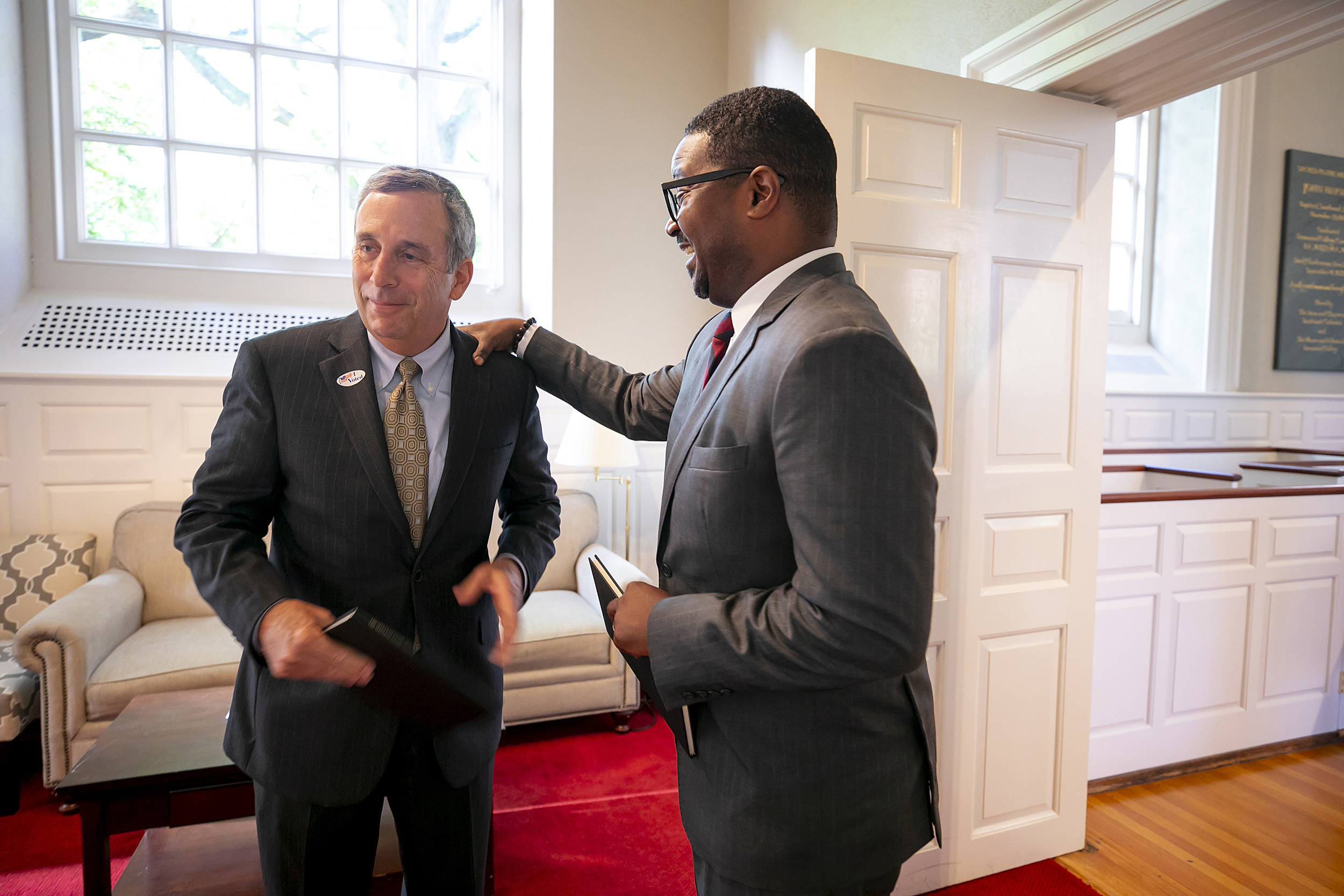
“As we gather today in this sacred space at the heart of our campus, I hope each of us is reminded of the importance of pausing to consider life, not in retrospect, or in prospect, but as it is actually being lived,” said Bacow, speaking at the first Morning Prayers of the academic year at Memorial Church’s Appleton Chapel.
“We each have many roles and many responsibilities to the world and to others. And we must commit ourselves to the task of thinking continuously about how we can be our best selves and how we can enable others to do the same — on this, our first day together, and on every day to come.”
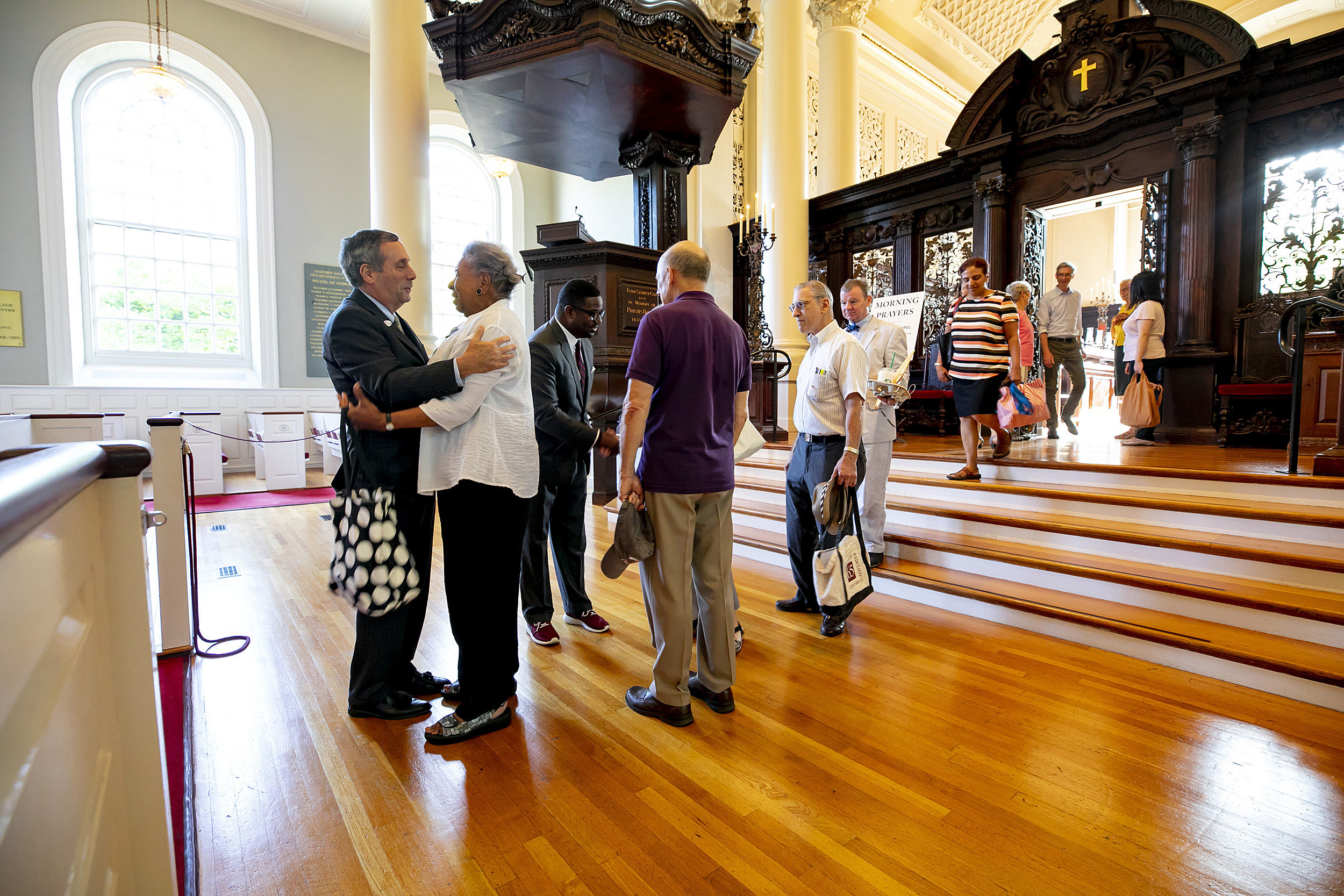
Bacow greets Florence Ladd, retired director of Radcliffe Bunting Institute and frequent attendee of Morning Prayers, as Walton talks to people following the ceremony.
Rose Lincoln/Harvard Staff Photographer
The tradition of Morning Prayers dates to Harvard’s founding in 1636. The brief weekday services during the fall and spring terms consist of songs, sacred texts, and secular readings and remarks, and guide members of the campus community through 15 minutes of contemplation to begin the day.
Bacow, who is Jewish, said that when he and his wife, Adele, attend Shabbat at their local temple, “We join with the congregation in what is known as the sanctuary, a word that acknowledges removal from the routine to seek community.”
The themes of community and reflection were echoed in the service’s music.
Choral Fellows of the Harvard University Choir sang “There must be a beginning to any great matter, but the continuing unto the end until it be thoroughly finished yields the true glory.” Attributed to a quote from a letter by Sir Francis Drake, the words were part of “The True Glory,” a new composition by the church’s composer in residence, Carson Cooman ’04.
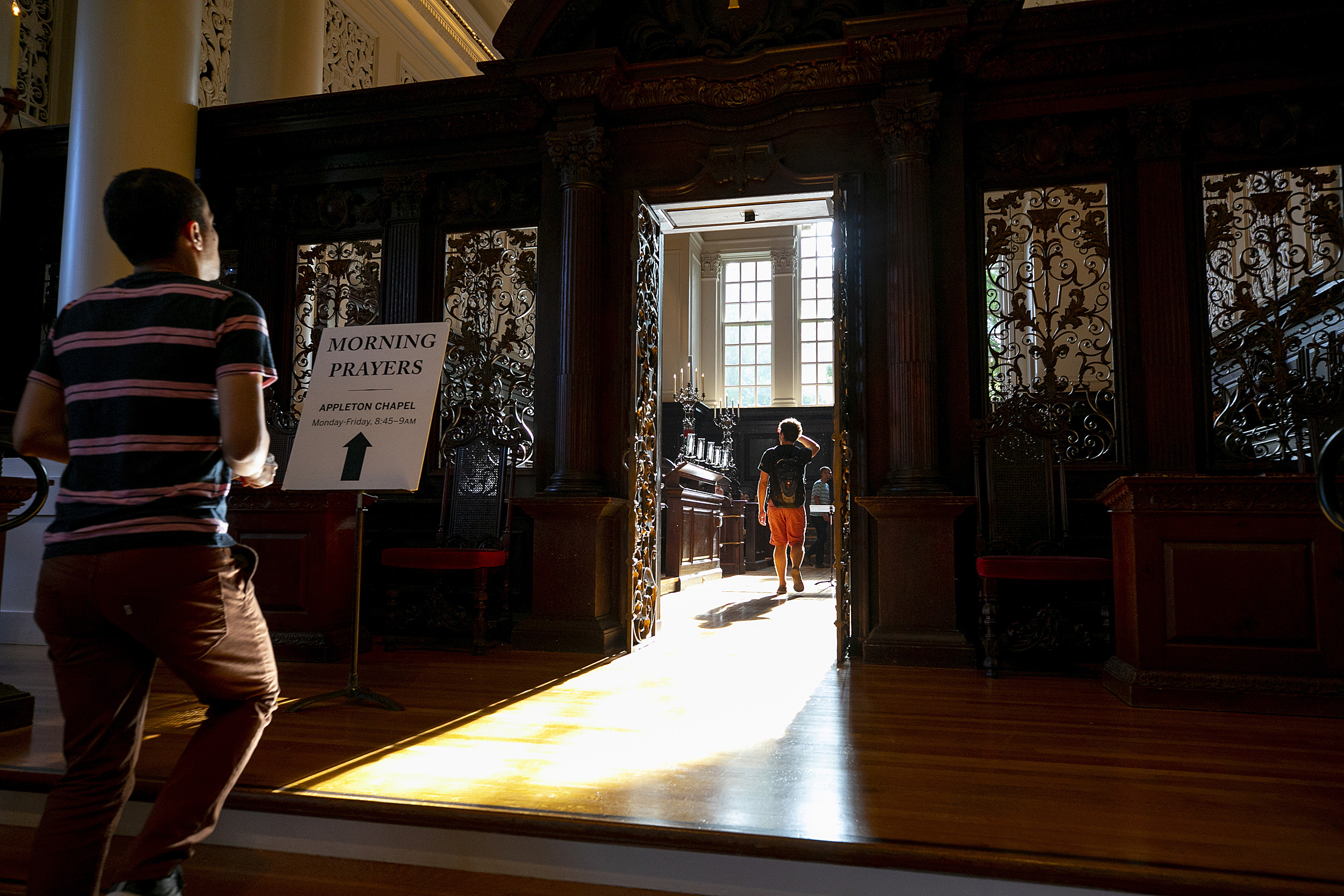
Students enter the chapel to hear President Larry Bacow.
Rose Lincoln/Harvard Staff Photographer
The hymn “Joyful, Joyful, We Adore Thee,” set to the “Ode to Joy” of Beethoven’s Ninth Symphony and sung at the service’s close, also evoked community spirit.
The Rev. Jonathan Walton, Plummer Professor of Christian Morals and Pusey Minister in the Memorial Church, called to mind the words of Jewish civil and ceremonial law as he brought the service to an end.
“Life is short, time is filled with swift transition,” he said. “So as the Talmud teaches, we shall not be overwhelmed by the ubiquity and enormity of this world’s suffering. We must do justice this very moment. We must love mercy today. We must walk humbly right now. We may not finish the work, but we remain responsible while we live.”



